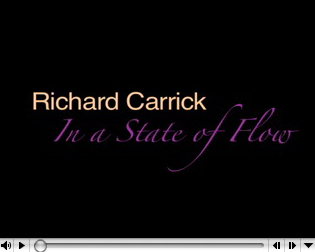In contrast to that last post highlighting the “dare you to define it” music I have in heavy rotation this week, Tom Service points to the good in the stuff of blatant genre crossing, awarding an A for effort in an era when the “genres of ‘pop’ and ‘classical’ now demand such different things from singers that the days of meaningful genre-hopping–when Enrico Caruso and Mario Lanza ruled the charts, the stage and the screen–may be over.”
Though it doesn’t do it for me–the fact that they went there in the first place seems to me to be too large a part of why anyone would care about the exercises–maybe I’m underselling the experience. The whole thing just makes me cover-my-eyes nervous and squirmy, particularly for the kids. The Aston ensemble, also offering their take on classical filtering pop, notes that “it’s a classical musician’s job to play other people’s music. We have just decided to play someone a little bit different.” Hard to argue with that sentiment, of course, though, this kind of thing lives on a two-way street.
I personally have my own weakness for a certain style of creative cover song, though I’m not sure where in the contemporary compendium of such work you’d shelve it. “Studied disaffected split-screen crossover”? It’s been a tough week technology-wise here for the AJ crew, so I thought we’d just go light on the analysis and finish up with a little fun. If your heart doesn’t melt a little when he sets up his portable theremin, well, we should probably not listen to records together anymore.
[via]


 Lately when I consume media online, I’ve noticed that I read a few graphs or watch a few minutes and then, in an increasingly frequent breach of self-control, I skip down to the comments to see what kind of discussion the piece generated. The comments can be pretty pointless, but in many places readers offer additional information, alternative viewpoints, etc. that fill out the topic at hand in some cool/useful way. Particularly if it’s something like a recipe, I can look for tips or corrections to the original. In an age that has decided it can largely do without fact checkers, I guess I’m also going there to check the public vote count on how trustworthy the reporting source is deemed to be. And such ready access to feedback has actually changed how I digest new information. Back in the days of paper and ink, I trusted what writers told me to a much higher degree because there was no peanut gallery (aside from whatever family member was in the room) to affirm or question the accuracy of what I had just read. There was certainly no Googling it.
Lately when I consume media online, I’ve noticed that I read a few graphs or watch a few minutes and then, in an increasingly frequent breach of self-control, I skip down to the comments to see what kind of discussion the piece generated. The comments can be pretty pointless, but in many places readers offer additional information, alternative viewpoints, etc. that fill out the topic at hand in some cool/useful way. Particularly if it’s something like a recipe, I can look for tips or corrections to the original. In an age that has decided it can largely do without fact checkers, I guess I’m also going there to check the public vote count on how trustworthy the reporting source is deemed to be. And such ready access to feedback has actually changed how I digest new information. Back in the days of paper and ink, I trusted what writers told me to a much higher degree because there was no peanut gallery (aside from whatever family member was in the room) to affirm or question the accuracy of what I had just read. There was certainly no Googling it.